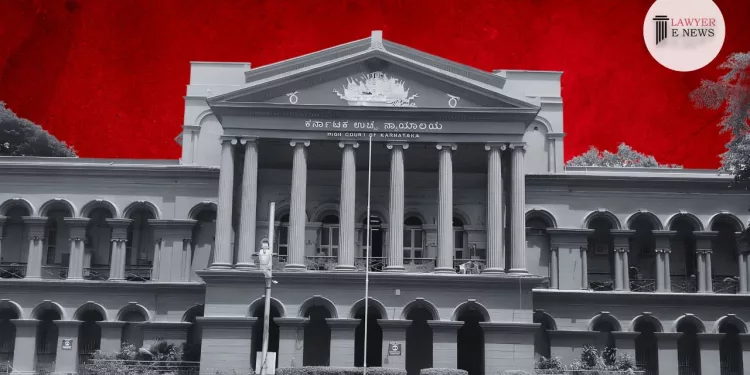NCLT Must Provide Reasoned and Speaking Order : Karnataka High Court on Byju’s Share Dispute

High Court emphasizes necessity of detailed NCLT ruling, maintains status quo on shareholding in Byju’s amid allegations of oppression and mismanagement.
The Karnataka High Court has remitted the case concerning allegations of oppression and mismanagement against Think and Learn Private Limited to the National Company Law Tribunal (NCLT) for fresh consideration. In a judgment delivered by Chief Justice N.V. Anjaria and Justice K.V. Aravind, the court underscored the necessity for the NCLT to provide a reasoned and speaking order while emphasizing the importance of maintaining the status quo regarding shareholding until a final decision is made.
The case involves an appeal by General Atlantic Singapore TL Pte. Ltd. and Sofina S.A., shareholders of Think and Learn Private Limited, alleging oppressive acts and mismanagement by the company’s current management. The primary contention revolves around the issuance of rights offer letters and subsequent allotment of shares, which the appellants argue were in violation of NCLT’s interim orders.
Necessity of Reasoned and Speaking Order:
The High Court highlighted the importance of a reasoned and speaking order by the NCLT when deciding interim applications under Sections 241 and 242 of the Companies Act, 2013. The court noted, “The NCLT must independently and meticulously assess the allegations and provide a detailed reasoning for its decisions to ensure transparency and fairness in its proceedings.”
The court directed that the status quo regarding shareholding be maintained until the NCLT issues its final decision. “The parties shall maintain status quo with regard to the subject matter dispute as obtained on today,” the bench ordered, emphasizing that any transactions or allotments made during the interim period would be subject to the NCLT’s final order.
Interim Reliefs Under Companies Act:
The judgment delves into the provisions of Sections 241 and 242 of the Companies Act, 2013, which provide for relief in cases of oppression and mismanagement. It reiterates the NCLT’s authority to make interim orders to regulate the conduct of the company’s affairs in a manner deemed just and equitable. “The Tribunal may, on the application of any party to the proceedings, make any interim order regulating the conduct of the company’s affairs upon such terms and conditions which may be imposed as just and equitable,” the court noted.
Conduct of Company’s Affairs:
The court observed that the appellants had raised serious allegations regarding the issuance of shares in violation of the NCLT’s interim orders. “Despite the order dated 27.02.2024 and the subsequent order dated 04.04.2024, the respondents have been brazenly committing breach and have been issuing the shares, which conduct is unlawful,” the appellants contended.
Quotes from the Judgment:
Chief Justice N.V. Anjaria remarked, “During the proceedings of remand and till the decision which may be taken by the NCLT, the parties shall maintain status quo with regard to the subject matter dispute as obtained on today.”
Conclusion:
The Karnataka High Court’s directive to the NCLT to reconsider the case with a detailed and reasoned order underscores the judiciary’s commitment to ensuring fairness and transparency in corporate governance disputes. By maintaining the status quo on shareholding, the judgment aims to prevent any further complications and ensure that the final decision by the NCLT is reached without undue influence or premature actions. This decision is expected to set a significant precedent for future cases involving allegations of oppression and mismanagement in corporate entities.
Date of Decision: July 5, 2024
General Atlantic Singapore TL Pte. Ltd. vs. Byju Raveendran & Ors.





